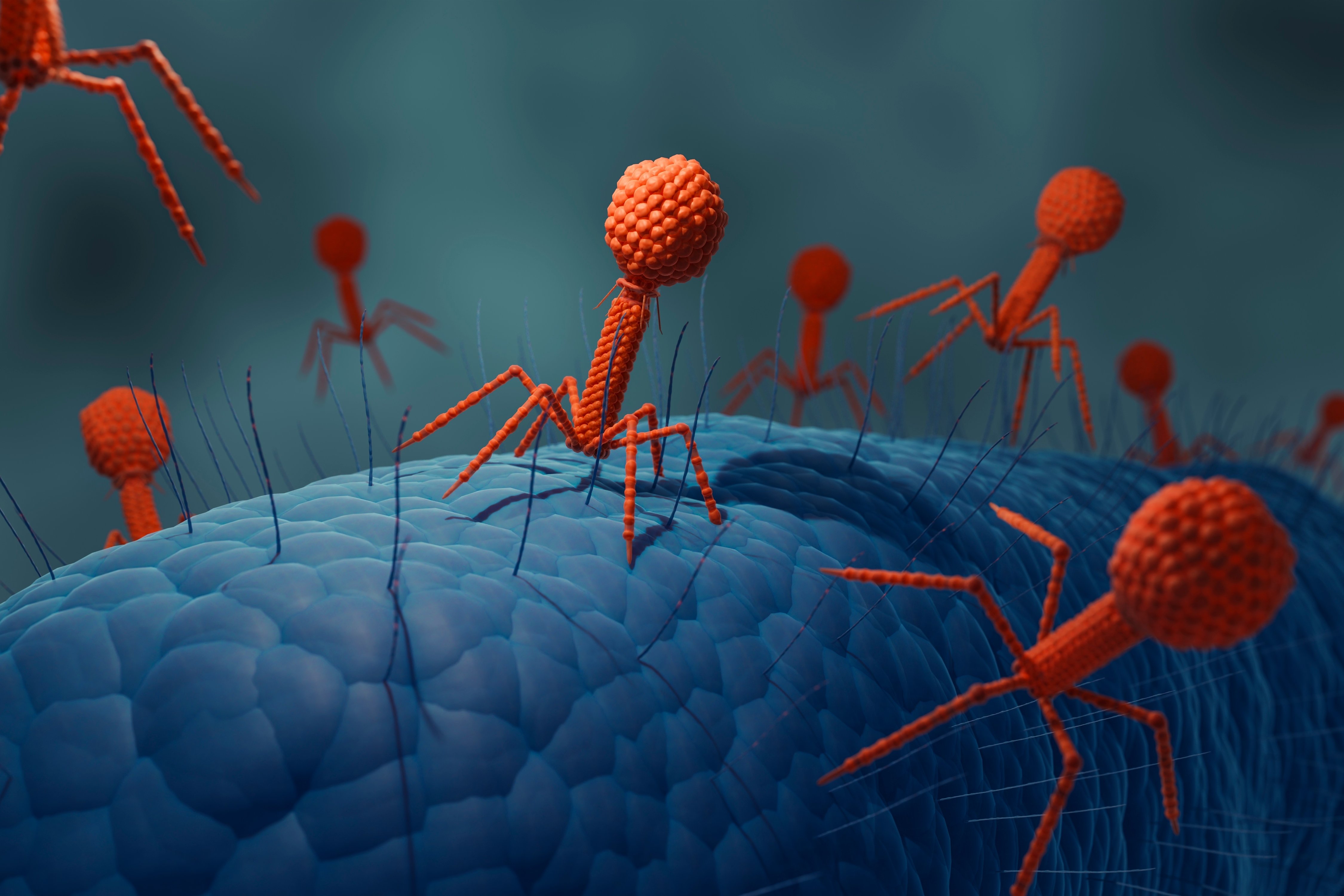
(Vienna, 26-03-2024) The use of bacteriophages is a promising option for the treatment of bacterial infectious diseases. The therapeutic use of these special viruses is a new treatment option, particularly for patients who have developed resistance to antibiotics. At the Department of Thoracic Surgery at University Hospital Vienna and MedUni Vienna in collaboration with the Division of Infectious Diseases and Tropical Medicine a patient has now been successfully treated with inhaled bacteriophages outside of a study for the first time in Austria.
The patient had undergone a lung transplant some time ago and had been suffering from chronic colonization of the lungs with a germ (Pseudomoas aeruginosa) for several years. The bacterium became highly resistant under the previous therapy attempts, which meant that conservative therapy options using antibiotics were no longer available. The lung function deteriorated continuously due to the bacterial colonization. This patient was now treated for the first time in Austria with viruses that only infect bacteria, so-called bacteriophages (phages for short). For 28 days, the patient received inhalations several times a day with a phage that specifically attacks and destroys only the patient's specific germ. "Treatment with the bacteriophage led to an impressive improvement in the patient's symptoms. For him, it is a completely new attitude to life," explains Matthias Vossen from the Clinical Division of Infectious Diseases and Tropical Medicine, Department of Medicine I at University Hospital Vienna and MedUni Vienna.
The therapy was carried out in collaboration with the hospital pharmacy of University Hospital Vienna and the Queen Astrid Military Hospital in Brussels, which has a large phage bank. Bacteriophages are highly specialized and often infect only one or a few subspecies of a particular pathogen. "Testing which phage should be used for which patient is very time-consuming, as phage therapy must always be accompanied by a suitable antibiotic. The necessary testing can only be carried out on a very fresh isolate of the respective pathogen," says Matthias Vossen. This means that treatment is somewhat limited. A so-called "calculated" therapy is not possible without being able to cultivate the pathogen. As the treatment has not yet been tried and trusted, the patient was closely monitored: "To ensure safe and effective treatment, the phage concentration in the patient's lungs and blood count were closely monitored," says Jakob Thannesberger from the Clinical Division of Infectious Diseases and Tropical Medicine.
Due to the completely different mechanism of action, bacteriophages can be used to treat germs that are resistant to many of the antibiotics that can be used. For the patients concerned, treatment with bacteriophages is often the only option for successful treatment of the infectious disease. In view of the success of the treatment, the tailor-made therapy is to be offered in selected cases via the Clinical Division of Infectious Diseases and Tropical Medicine, Department of Medicine I at University Hospital Vienna and MedUni Vienna. Research is currently being carried out at University Hospital Vienna and MedUni Vienna in various specialist areas into the potential applications of bacteriophages, for example in the treatment of neurodermatitis.